‘One state solution is the only long-term solution’

As Israel's expansion of the conflict in Gaza to Lebanon creates havoc in the Middle East, Dr Bashir Saade, Lecturer of Politics and Religion at University of Stirling and author of ''Hizbullah and the Politics of Remembrance,' speaks to Ramisa Rob of The Daily Star in an exclusive interview about what lies ahead and the solution to the geopolitical wildfire in the region.
How would you analyse the escalation of the conflict so far?
This war between Israel and Hezbollah so to speak is largely an information war, similar to 2006 but what has changed now is that Israel has really upped its game in that regard. However, since the 1990s Israel has not been "militarily" able to grab any territories. The last time this happened was in 1982 in Lebanon, and before that, 1967, in Palestine, all of which led to the creation of this axis of resistance such as Hezbollah and Hamas. The killing of Hezbollah General Secretary Hassan Nasrallah was of course related to the pager attacks earlier which created a shock in the system of the organisation. It's definitely all connected and it's definitely a big escalation, but not in the sense of an all-out war yet. Rather, it's the surprise events that have occurred as we were not expecting that Israelis would go that far to kill Nasrallah because that decision to kill such a leader is a large political decision where there must be a greenlight from the powers that be, and a concerted effort to kill such a leader. The political implications of Israel's actions by killing the head of the organisations they're in combat with is essentially shooting down the possibilities of negotiation talks and ceasefires. So Israel has declared their aim to eliminate Hezbollah, the way they did to eliminate Hamas but they largely destroyed infrastructure and killed civilians. What emboldened Israel is the information edge it has and the possibility of killing leaders and getting to Hezbollah through the pager attacks. This emboldened stance had led Israel to move forward with ground invasion. But this is difficult to achieve so that's why Israel tries to win by spreading terror, destroying infrastructure—not just ones where weapons are located—and killing civilians so as to provoke a change in confidence in Lebanon towards Hezbollah and pressure the group to surrender.

I also think Israel is doing what they're doing because Hezbollah and Iran act in a measured and restrained manner and escalate gradually, and in a way they deem appropriate by calculating their military objectives. There's something quite dark about this though: Israel can go to lengths disregarding international law and killing civilians and be immune from accountability in the international stage whereas the resistance has to go to many lengths to ensure they don't kill civilians—not that they want to—or commit any massacres similar to Israel. I didn't think Israel would be so audacious in doing what they did, and in the pace that they've set off, but that being said, I still think on the military ground level not much has changed. Hezbollah is shooting way more targeted rockets, and Israelis are not being able to do much about securing the northern front. The point I am trying to make is that despite what Israel has done much of how Hezbollah is functioning at the military ground level has not drastically changed. Israel is losing soldiers so they're trying to pressurise in different ways like striking civilian areas to force Hezbollah to budge and give up.
Can you unpack the strategies and the games underlying the tit-for-tat exchanges between Iran, its proxies and Israel and the US?
So for Iran, I do think the strikes have been effective as they have been able to show they can destroy important military structures in Israel and their main goal to the opponent, especially the US, is to send a message: Israel should not make it bigger than it is. In terms of their own strategy, since the current regime is fortified by the US from all directions, they do everything to not be attacked. On the other hand, the sole goal of Hezbollah, a guerilla organisation—which is obviously a lot weaker than Israel—is to disrupt Israel's security and make Israel accept a ceasefire in Gaza. Israel is playing a completely different game though. They killed Haniyeh, who was the negotiator for Hamas, and Nasrallah, a moderate and pragmatic person for the resistance, which means Israel is aiming to eliminate the resistance completely because they're not willing to negotiate at all. The Palestinian cause and sovereignty of Lebanon for example does not exist to Israel. If there is a Palestinian cause, Israel wants to decide how it's going to be. The sovereignty of Lebanon, for Israel, is something they can decide the terms of. So for example if Israel takes down Hezbollah—which they can't but let's just hypothetically say they do—then they will take over the south of Lebanon to just colonise the place and that way, they don't lose this opportunity. But if Hezbollah stays, then Israel has to recognise that Lebanon has a national interest, the people have rights and Israel would have to compromise. We are very far from that scenario now because Israel's strategy is to completely eliminate the opponent and force Iran to stop funding the resistance to Israel. But the Iranian strategy on the other hand is to continue funding the axis of resistance, because it's Iran's only way of having power in the region and fending off threats to its national security from a political pragmatic point of view. After the US invasion of Iraq and Afghanistan, and Arab states' normalising with Israel, the only option that Iran really has is to keep pursuing these bridges and make allies in order to survive. But Iran's position in the region is defensive to protect its position.
Israel's strategy at the moment is really not sustainable and there's also the internal politics of Netanyahu dragging this on to continue being the Prime Minister and not go to prison. The US, on the other hand, has quietly profited off of this situation because they've always locked heads with Iran. In many ways, it's not in the US interest to directly confront Iran but if a major retaliatory strike happens from the US and Israel, it would be because the US has weighed that a confrontation will not be as damaging but rather draw a theatrical strike from Iran to save face. In other words, this is a zero-sum game. In the long term Israel's elimination strategy will not work because resistance will happen again—someone else will come and they may well be a lot angrier. What Israel and the US have to accept at some point is that in the long term this Zionist project, and apartheid regime cannot continue—which is really what the conflict is all about.
What do you think is the solution to this ongoing conflict in the long term but also, what is the short term solution to achieve that long term solution?
In the long term, I think the only solution is the one state solution—one state that is pluralistic where Muslims, Jews, Christians and just people from all religions live together and there's no stolen land or settlements and where everyone can strive for equality. In the short term, we are obviously very far from this because Israel has the whole world behind them, supporting them, and powerful countries like the US unilaterally funding them to do the opposite. They have the full power and license to defend itself as a Jewish state so as long as that's the rationale, this conflict will continue. The resistance, a force that comes from within to challenge the colonial power to stop it from killing and killing thinking that they can just eliminate the opponent, will continue to just get bigger and bigger. This is exactly what happened in South Africa and Vietnam. You can kill people, but there will always be another generation that's what they will have to get. So say Israel destroys Hamas—which they can't—but there will always be another Hamas or Islamic Jihad and so on. Let's not forget, first it was the Palestinian Liberation Organization (PLO) and now it's Hamas, so the cycle has continued and it will continue as long as this structural problem continues. Zionism is the satellite of imperialism, the last experiment of modern day colonialism—first it was by the British and then now it's in the hands of the US—and there will be a time that it will just have to end.
We welcome your contributions and analysis of global events, and responses to our articles. To submit articles to Geopolitical Insights, please send an email to [email protected].
Follow The Daily Star Opinion on Facebook for the latest opinions, commentaries and analyses by experts and professionals. To contribute your article or letter to The Daily Star Opinion, see our guidelines for submission.


 For all latest news, follow The Daily Star's Google News channel.
For all latest news, follow The Daily Star's Google News channel. 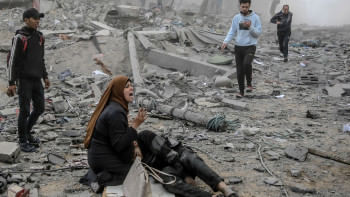
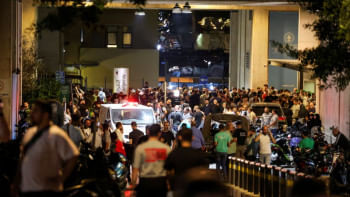


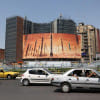
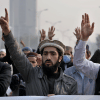


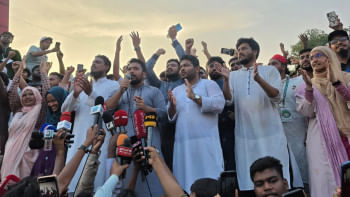
Comments